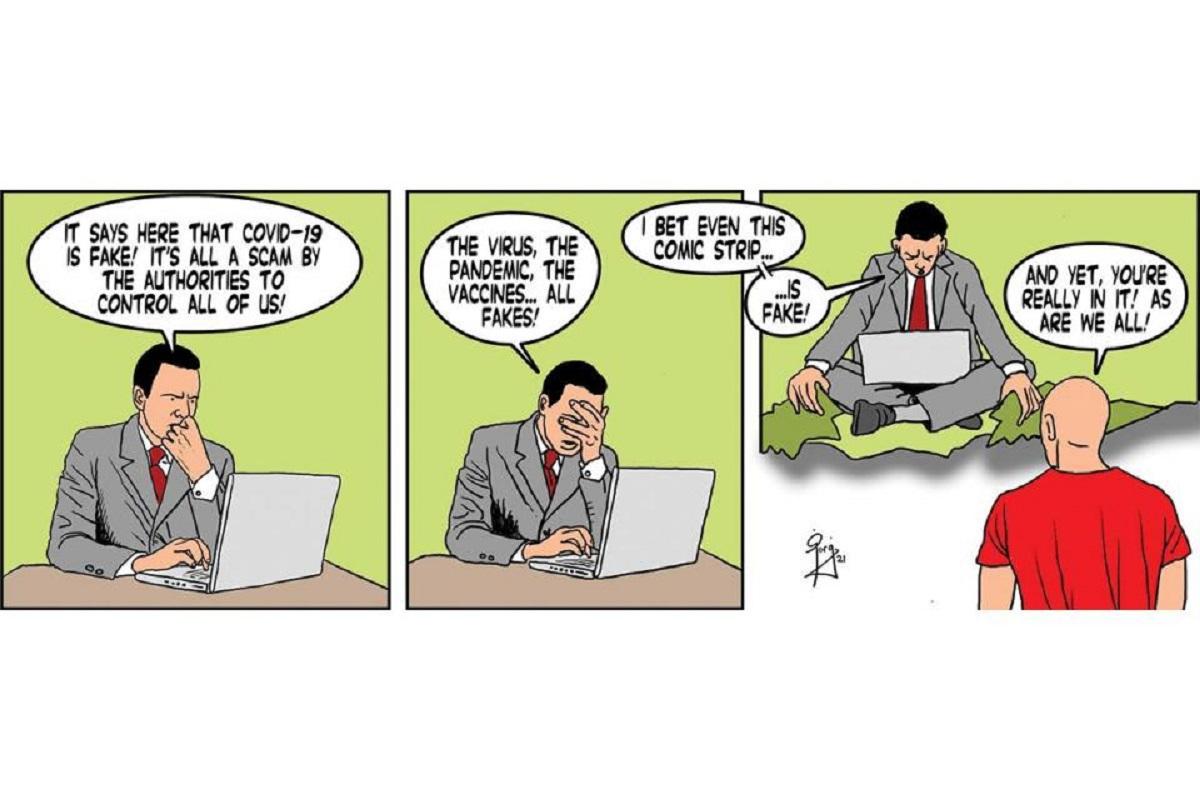
Facebook’s censorship algorithms strike again! Editorial cartoonist Ġorġ Mallia had his cartoon taken down for violating community standards; the strip in question was removed for spreading “false information about COVID-19 that could contribute to physical harm.” The problem is, the strip was not peddling false information but commenting on it!
Ġorġ Mallia’s strip was part of Żepp, a twice-weekly cartoon he creates for the Times of Malta newspaper. It was one of a series specifically focused on the ‘new normal’ we’ve all found ourselves in. As seen in the strip above, the piece centers on a character in denial of the pandemic. The character eventually breaks the fourth wall, disbelieving his own existence in the strip, satire completely lost on the algorithm.

The face of censorship has morphed in many ways since the birth of CBLDF in 1986. This instance with Mallia is an example of how the rising use of algorithms contributes to censorship across the globe. Algorithms used by artificial intelligence appear to have issues dealing with satire and irony. Incorrect facts that break the community standards avoid the censors while more nuanced posts are removed, or the users are blocked. What strikes me is the lack of accountability for what the algorithms do and how they make their decisions. Often, creating an algorithm with an incorrect data set or with parameters that are too wide can cause problems.
Ġorġ Mallia is outspoken about his belief in free speech.
…the question becomes: do you curtail freedoms, to prevent those freedoms from being abused? My answer is ‘no’; because by curtailing freedom, you will also be curtailing the rights of those who deserve those freedoms, and would use them well. This is why, at its core, freedom of expression is an absolute right.
However, even Mallia believes in checks and balances to the system. One check, though imperfect, is the use of the courts. Being a satirist, Mallia understands the necessity of truth.
If [I] am to satirize someone, it has to be on the basis of something that person said, did, or is. I can’t base my satire on something I simply invented about that person myself. That wouldn’t be satire; that would be slander, to the highest degree.
Algorithmic bias or censorship is a rising issue in the digital age. In the coming months, we’ll continue to report on these issues and post more in-depth analyses. Algorithmic censorship is one of several topics we’ll discuss at our member meeting Recoding Censorship at the end of the month, Thursday, June 24th. The panel will discuss new ways in which censorship appears in the comics community. Attendance is free and open to the public.